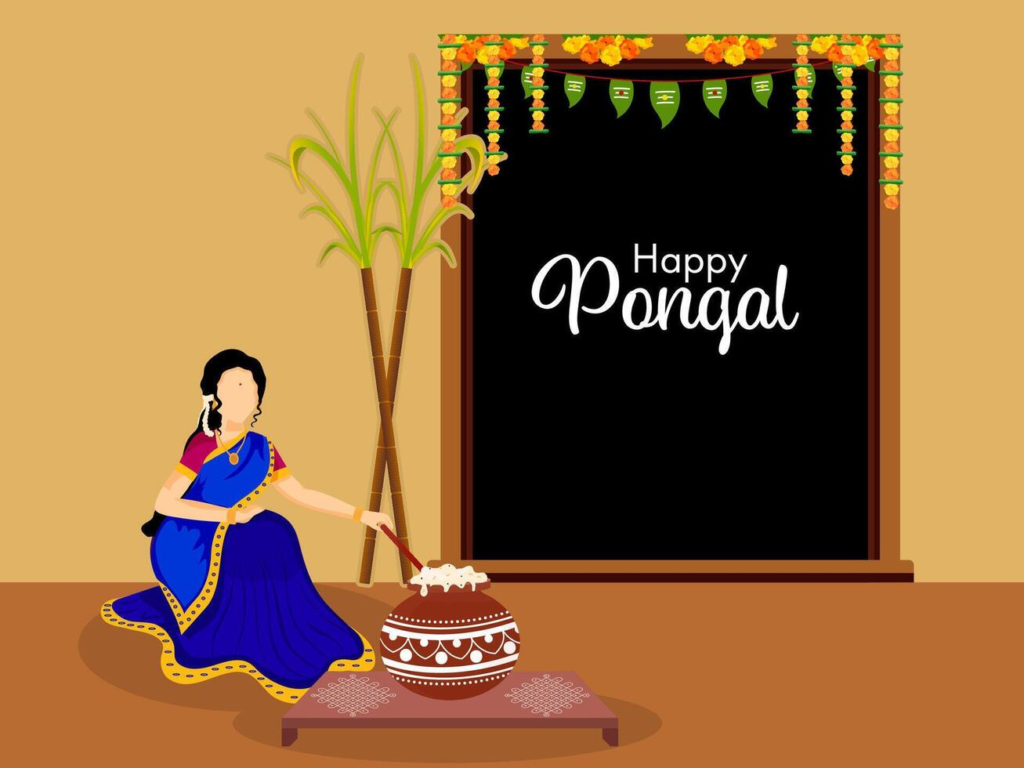
Pongal is more than just a festival—it is a grand celebration of gratitude, nature, and new beginnings. This vibrant harvest festival is eagerly awaited each year and is deeply rooted in tradition and cultural pride. But where is Pongal celebrated, and how does it signify the New Year? Let’s explore the beauty of Pongal and the regions where its spirit comes alive.
Table of Contents
- Introduction to Pongal
- Where is Pongal Celebrated?
- Tamil Nadu: The Heart of Pongal Festivities
- Across India: Regional Variations
- Global Celebrations: Pongal Beyond Borders
- The Four Days of Pongal and Their Significance
- Day 1: Bhogi Pongal
- Day 2: Thai Pongal (Main Day)
- Day 3: Mattu Pongal
- Day 4: Kaanum Pongal
- How Pongal Marks the New Year
- Traditional Rituals and Customs
- Conclusion: A Festival of Gratitude and Renewal
1. Introduction to Pongal
Pongal is a multi-day Hindu harvest festival celebrated predominantly in Tamil Nadu, India. This joyous festival typically falls in mid-January and coincides with the auspicious Makara Sankranti, marking the sun’s northward journey (Uttarayanam). It is a time to express gratitude to the Sun God, the cattle, and the earth for a bountiful harvest.
The festival derives its name from the Tamil word “Pongal,” which means “to boil over,” symbolizing prosperity and abundance. At the heart of the celebrations is the preparation of Pongal, a sweet dish made from freshly harvested rice, milk, and jaggery.
2. Where is Pongal Celebrated?
a) Tamil Nadu: The Heart of Pongal Festivities
Pongal is celebrated with unmatched enthusiasm across Tamil Nadu. Homes are adorned with kolam (intricate rice flour patterns), and families gather to prepare the traditional Pongal dish. Special prayers are offered to the Sun God, and the festivities highlight Tamil culture, community spirit, and rural traditions.
b) Across India: Regional Variations
While Pongal is a Tamil festival, similar harvest celebrations occur throughout India:
- Andhra Pradesh & Telangana: Known as Pedda Panduga, this festival involves traditional cooking, cultural performances, and community feasts.
- Karnataka: Celebrated as Sankranti, with the exchange of sugarcane and sesame sweets symbolizing peace and joy.
- Punjab: Observed as Lohri, a lively festival with bonfires, folk dances, and songs.
c) Global Celebrations: Pongal Beyond Borders
Pongal is celebrated by Tamil communities worldwide, especially in countries like Sri Lanka, Malaysia, Singapore, Canada, and the USA. In these regions, the festival is a cherished link to cultural roots and is marked by community gatherings, cultural events, and temple ceremonies.
3. The Four Days of Pongal and Their Significance
Day 1: Bhogi Pongal
The festival begins with Bhogi, a day dedicated to discarding old belongings and welcoming the new. Families light a bonfire to burn old items, symbolizing transformation and renewal.
Day 2: Thai Pongal (Main Day)
The most significant day, Thai Pongal, celebrates the harvest. Families prepare the Pongal dish, and as it boils over, they chant “Pongalo Pongal!” to welcome prosperity. Special prayers and temple visits mark the day.
Day 3: Mattu Pongal
This day honors cattle, which play a crucial role in agriculture. Cows and bulls are bathed, decorated with garlands, and fed special treats in appreciation of their contribution to the harvest.
Day 4: Kaanum Pongal
The festival concludes with Kaanum Pongal, a day for social gatherings and family reunions. People visit relatives, share festive meals, and exchange blessings for a prosperous year ahead.
4. How Pongal Marks the New Year
While not the official New Year’s Day, Thai Pongal is considered the beginning of a new agricultural cycle and a fresh start. It ushers in Thai Masam (Tamil month of January-February), believed to bring new opportunities and happiness.
The festival embodies hope, gratitude, and renewal, reminding people to cherish nature’s bounty and embrace new beginnings with optimism.
5. Traditional Rituals and Customs
- Kolam Art: Intricate designs made from rice flour decorate doorsteps, symbolizing welcome and prosperity.
- Pongal Preparation: Cooking the sweet Pongal dish outdoors in earthen pots under the sun symbolizes gratitude to nature.
- Cattle Worship: Mattu Pongal emphasizes the agricultural bond by honoring and feeding livestock.
- Community Spirit: Families gather to share meals, exchange gifts, and celebrate cultural heritage.
6. Conclusion: A Festival of Gratitude and Renewal
Pongal is not just a harvest festival—it is a celebration of life, gratitude, and the eternal bond between humans and nature. Whether in the heart of Tamil Nadu or across the globe, the essence of Pongal remains the same: to give thanks, embrace new beginnings, and share joy with loved ones.
As the Pongal pot overflows, may it bring overflowing happiness, prosperity, and warmth into your life. Pongalo Pongal!

